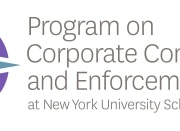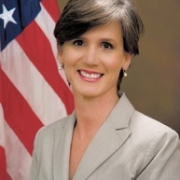Featured Expert Mira Dewji, Attorney, Adjunct Professor and Strategic Advisor
Featured Expert Mira Dewji, Attorney, Adjunct Professor and Strategic Advisor
 What are your current areas of work and instruction?
What are your current areas of work and instruction?
I’m a practicing attorney in the social impact sector and an Adjunct Professor in the Business and Society Program at NYU’s Stern School of Business. I provide legal and strategic advice to high-impact social enterprises, small businesses, foundations, and nonprofits whose means and ends align with my values. I see the law as a tool with which I can craft, protect and facilitate my clients’ social objectives. Perhaps because my clients are organizations and not individuals, my interest in business ethics is at the organizational level. When social impact is framed as ethics, it adopts a powerful lexicon. A business or industry’s responsibility becomes more than merely a conversation around compliance with law or private sector benevolence. Social impact encompasses the duties and relationship between an organization and the environment that facilitates its existence.
From this perspective, it is not sufficient for an organization to maintain certain ethical practices with key stakeholders such as employees, customers, and partners. Designing systems that define and foster company values such as honesty, integrity, transparency, accountability, trust, and ethical leadership are essential. But organizations also participate in shaping societal values and outcomes, and the extent to which a company embraces that responsibility is a reflection of its ethics.
Could you provide a few specific examples of the relationship between an organization and broader societal values and outcomes?
Sure, I can briefly describe four big-picture problems that raise ethical dilemmas at the organizational level.
The first is consumerism. Our economic system rewards organizations based on how much of their product or service they can sell and how quickly. This creates obvious problems where a product or service might be inherently harmful, such a cigarettes or biochemical weapons, or where a product might deliver value in small quantities but may become detrimental when consumed in larger quantities, such as gambling or opioids. Financial instruments such as residential mortgage loans might be extremely beneficial up to a certain point, allowing us to realize and leverage the value of our homes, but, as the financial crisis demonstrated, when we reward the speed and quantity sold, the “overconsumption” of debt can have disastrous effects. And those are just direct impacts, there’s also a very interesting conversation about the cultural and psychological effects of consumerism as a value system.
The other side to the story is of course, keeping costs as low as possible, which can overshadow other priorities and ethical obligations when it comes to the value we place on human labor, on the quality of inputs, and the depletion of our natural environment, just to name a few.
Last month’s Company Snapshot on this blog highlights the anti-consumerism approach taken by the retail outdoor clothing company Patagonia, whose founder challenges consumers not to shop out of boredom but to think twice about whether they really need a Patagonia product. The company offers to repair, resell, and recycle its products free of charge, which demonstrates and incentivizes the use of high-quality inputs.
A second dilemma is the financial reward available for hiding or downplaying the impacts of conflicts of interest. The credit rating industry provides an egregious example. It is highly concentrated, with three companies controlling 95% of the global market. The agencies are service providers, and their customers, the issuers and arrangers of structured finance products, shop around for the best ratings. The market relies on their ratings to guide investment decisions. Agency profits are directly linked to the success of their clients, and on structured finance generally, so there are powerful incentives to provide higher ratings. A less egregious example is with respect to social media influencers, who command considerable consumer power through their followers. In the last few months, the Federal Trade Commission started to warn influencers of their obligations to disclose sponsored content but the social media platforms themselves have not taken responsibility.
Third, let’s talk about democracy. As a society we have fought long and hard to design and defend a system of government in which we hope public policy reflects the desires and best interests of the majority of voters. When businesses and industries leverage their financial power over policy-makers in order to protect and prioritize their interests, how does that affect the democratic process? It’s time we discussed lobbying and campaign finance through the framework of ethics.
Finally, I’ll mention the ethics of tax avoidance– the deliberate arrangement of financial affairs to minimize tax liability within the law. What does it say about a company’s values when it engages attorneys and accountants tasked with reducing the amount of funds made available to government? The practice certainly cannot be helping government’s struggle to fund the public institutions required to effectively maintain the public order, deliver justice, implement public policy, administer free and fair elections, and pursue the common good. Companies rely on those same public institutions to whom they withhold funds to help them create profits. For example, to enforce contracts, provide physical and digital infrastructure and security, and prosecute fraud. Organizational ethics is relevant because lawful behavior has the potential to negatively impact societal values, such as the rule of law and democracy.
What are some of the questions that a company might ask itself in order to better align its practices with its values?
- How does my product or service affect the individuals or families who consume it? Do the effects change at high quantities or volumes?
- How does the consumption of my product or service create or shape cultural norms or beliefs?
- How does my industry participate in the shaping of public policy?
- Who should be designing the rules that regulate the behavior of companies in my industry?
- Where is my company subject to conflicts of interest, and to whom should they be disclosed?
- What values are reflected by exploiting loopholes to minimize tax consequences? What might be the consequences on government and society?
- Do our political associations reflect our company values?
- What values do our partner organizations demonstrate through their operations and their relationships with other societal institutions?
- Do those who most need our product or service have access to it?
- How does cost reduction drive decision-making?
- What price are we willing to pay, if necessary, to operate according to our values?
- Who are we as an organization? What is our purpose and what do we value?
- How do we demonstrate our values in practice?
- What are some of the less obvious incentive structures that might be influencing our decisions?
- In the pursuit of profits or other objectives, might we be increasing the risk of harm to others? If so, what level of risk do we consider acceptable?
Having advised a variety of institutions in the financial industry, where do you see the biggest opportunity to improve ethics in that sector?
Rana Foroohar makes a compelling argument that the financial sector has become a hindrance to business. I’m paraphrasing and integrating some of my own thoughts here, but she demonstrates that current policies incentivize debt and volatility, and a handful of large financial institutions wield considerable political power. This had led to a disjunct between the interests of the financial sector and those of business and society. As a result, the sector has ‘gone rogue’ so to speak, re-circulating capital in a closed, self-serving system. I think the time is ripe for industry leaders to reflect on their organizational purpose. The same frameworks through which individuals contemplate their identities might help them define themselves and the role they want to play in shaping society. They might consider a pivot towards a more inclusive, sustainable banking system supported by, and supporting in return, societal values such as entrepreneurship, innovation, accountability, and shared prosperity.
You once said about the field of law “You have to learn how to find your balance, to learn how to sometimes say ‘No, I’m maxed out right now.’ Otherwise, you’ll be massacred.” How would you advise people to say no without impacting their reputation as a team player?
I made that comment in the context of a question I was asked by an interviewer about the work ethic within some of the biggest global corporate law firms. Top students are recruited during law school, and both salary and expectations are remarkably high. I worked for five years averaging around 60-70 hours per week. The stress of transactional practice stems from the combination of the fast pace and high stakes (I was part of a team that negotiated a $6.5 billion all-cash acquisition during my first year), and the complexity of the deal structures which demand meticulous and collaborative contractual drafting. I think being able to speak up for myself was part of why I outlasted 80% of my peers who joined the same year but left before me, and why I can now look back fondly to a time and place where I was provided with an incredible opportunity to hone my legal skills, maximize my productivity, and develop lifelong friendships.
My advice would be to invest in developing personal connections with colleagues and supervisors so that they understand and appreciate your perspectives; to frame your request or concern as an opportunity for them or for the organization if possible; and to choose a time when you can speak in private, face-to-face, with open, relaxed body language. Part of being a team player is being responsible for yourself. It serves no one if you to adopt a victim or martyr mentality. Acknowledging and addressing your needs is in the best interests of your teammates, supervisors and employer.
If you could give one piece of ethics advice to companies, what would it be?
Focus on ethical outcomes, not merely on processes. In the study of constitutional law, there’s a distinction between the concepts of procedural due process, which focuses on fair procedures, and substantive due process, which allows for the protection of certain fundamental values even where fair procedures are in place. There’s an acknowledgment that actual outcomes may be unfair even in the presence of robust, fair procedures. Borrowing from that idea, I would encourage organizations to spend time and effort developing an ethical identity that might provide guidance on shaping the relationship and impact they have with society. Root policies and procedures with a set of underlying values, consistent with organizational identity and culture, and assess success based on ethical outcomes.
If you could give one piece of ethics advice to individuals, what would it be?
Your personal values are your professional values, and can be reflected in the social impacts of the company you work for, invest in, purchase from, sell to, or otherwise support.
Previous interviews:
 |
 |








